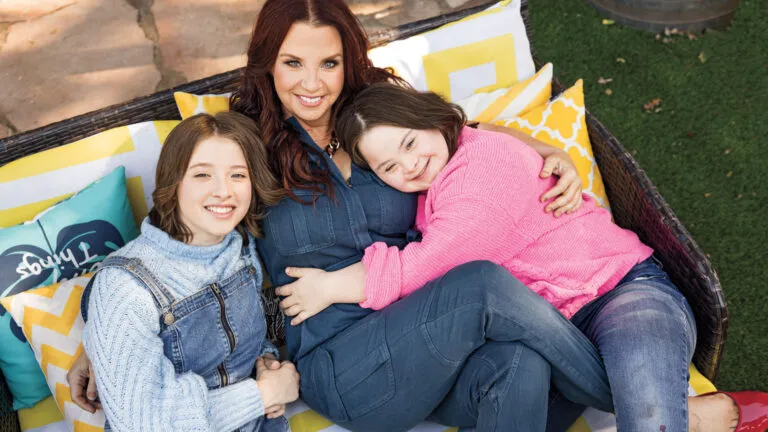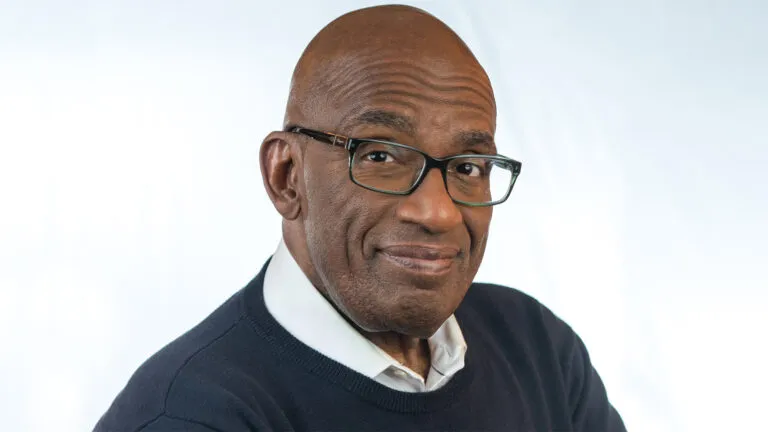It sometimes takes cold, black disaster to inspire one to achieve the heights of success.
But for my accident I would now be back at my pre-war job as butcher. Instead, I have been in motion pictures, on the radio, subject of magazine articles—but best of all, I have had a chance to show other disabled veterans like myself that it is possible to bounce back from utter despair to undreamed-of success and happiness.
On that black June day in 1944 when I lay on a hospital bed, looking down at two big bandages where my hands used to be, I frankly thought it meant the end of useful living for me. What can I do now, I asked myself bitterly? Probably just live out my years on an Army pension.
ENJOYING THIS STORY? SUBSCRIBE TO GUIDEPOSTS MAGAZINE!
This self-pity and despair didn’t last very long though. There is something in most people that won’t let them take defeat lying down. Call it anything you like, but to me it is faith—faith in God and in myself, faith that I can always rise from every setback. A man is licked without this.
At Walter Reed Hospital there was no funeral atmosphere. Nobody pitied himself or anyone else. A guy with both legs gone was called “Shorty;” a man with but one leg, “Limpy;” and a soldier with only one arm, “Paperhanger.” As for me—I was “Hooks.” This may sound grim, but we had to develop a sense of humor, and this was the best way to do it.
My first reaction to the hooks, which were to serve as my hands, was one of dismay. The first day I tried them on, it was worse—it was torture. Unable to make them do anything, I was ready to give up. But the next day I tried again —and kept on trying until I made them work.
My first experiences out of the hospital were also trying ones. Those I met with a sense of humor were most helpful. Take the little old lady to whom I sold meat before the war. When she saw me, she broke out with: “Oh, you poor boy.”
Then, realizing that this was the wrong approach, she stopped and chuckled, “No wonder you lost your hands. Goodness knows you sold them to me often enough weighing my meat. They didn’t belong to you anyway; I bought them many a time with my potroasts.”
I liked that reaction—frank and sassy.
The two chaplains in our hospital were two of the finest representatives of God I have ever known. They realized that it wasn’t enough to simply tell us to have faith; we had to be shown how to apply faith in overcoming our handicap.
In their talks with us these chaplains had many a sharp, realistic question fired at them. They never tried to duck the “hot ones.” With patience and understanding they answered everything as best they could—and their best was of real comfort to me and to the others.
There were Protestants, Catholics and Jews in our ward, but no one was concerned as to who belonged to what church. There may have been atheists there, but I doubt it. Certainly there were some who had grave doubts as to God’s justice in view of their own calamity. I know I never gave up on God, and I don’t believe anyone else did either—really.
I have found that you can’t tell how religious a man is by what he says, or does.
Before my accident I recall during our combat training that religion never showed much on the surface, but was very much there under the surface. All of us put up a tough front. We belonged to the school of realism. War was rough, so our actions and talk had to be rough—we figured. And the paratroops, I can safely say, were the toughest bunch of all.
One man in our company, Big Joe, was the most awesome physical specimen I have ever known. Huge in stature, a calloused hulk of muscle, Big Joe swore furiously, drank mightily and was ready to fight at the drop of a hat. He might have been Satan himself as far as the others were concerned, but I knew different.
On our practice jumps I sat next to Big Joe in the plane and jumped right behind him. As the tense moment arrived just before we were to go spilling out into space, I could see Big Joe’s face relax. It grew gentle, serene, and his lips moved in a quiet prayer. At this moment I think he felt very close to God. But once on the ground, he was a man of fierce action again, ferocious, grim, the Devil himself.
Not all soldiers concealed their religion with such camouflage. I know of one soldier—we’ll call him Steve—who did just the opposite. He was friendly, brimming with good humor, a thorough extrovert in every sense. To appreciate this story, you must get the picture of the inside of an Army barracks. Bunks are lined up on either side, sometimes as many as thirty on one floor. Privacy simply doesn’t exist.
In the evening just before lights went out, there was always a terrific hubbub … men coming in from pass, loud arguing, singing and constant traffic back and forth to the shower. Steve was always right in the middle of the loudest argument or the noisiest singing—until he saw time running short. Then he would break away and hustle out of his clothes.
But just before he climbed into bed, he always knelt quietly with folded hands at the side of his bunk … and prayed.
The noise, the bright lights, the confusion never bothered him. No one ever made fun of him or kidded him for it. In fact, underneath, these hard-bitten men admired and respected him for his open faith. To them it represented real courage in the face of possible ridicule. But I actually believe that Steve never felt that he was being conspicious. To him it was the right and natural thing to do.
The first occasions when he kneeled by his bunk there was no let-up in the noise about him. The men simply took a quick, surprised glance at Steve, then looked away. But after several nights there was a noticeable lull while he prayed. Voices died down, horseplay subsided until he had finished. It simply didn’t seem right to be kidding around during those few moments.
I mention these few experiences because I have heard so many people say that the youth of today are turning away from religion. Nothing can be farther from the truth. What many people consider irreverence on the part of youth is merely impatience—impatience with churchmen who won’t take more initiative in working out some of the post-war problems.
Young Americans—especially veterans of the past war—want to see the men of God roll up their sleeves and tackle such problems like these same ex-servicemen tackled the problem, say, of demolishing an enemy pillbox. Just talk isn’t enough. They want action!
My chance to act the part of Homer Parrish in The Best Years of Our Lives was one of the finest things that will ever happen to me. Not because it made me a Hollywood celebrity, but because it gave me a chance to show thousands of other disabled people that a handicap can give them the necessary impetus to achieve more than if their calamity had never happened.
I know this to be true with many others beside myself. A close friend of mine was a great athlete before he lost both legs. This blow changed the course of his life, and now he is a brilliant lawyer with a great future before him. He admits that but for this accident his present achievements would never have been realized.
There are hundreds, thousands of similar cases. And they were all able to rise from the depths, I feel sure, not only because they had courage, but because they also had a great source of inner power—religious faith.
For more inspiring stories, subscribe to Guideposts magazine.





